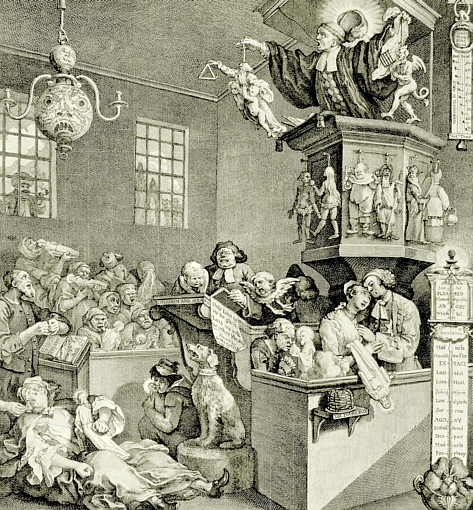In a previous post entitled
Bad Arguments against the Magisterium, Part III, I mostly introduced and quoted Prof. Bryan Cross' article
The Tu Quoque. What is "the
tu quoque" here? It's an argument that's become very popular among Protestants of all stripes who argue online against Catholicism, and Bryan sums it up crisply, as well as doing a good job of rebutting it. It's the argument that Catholicism, with its reliance on ecclesial infallibility for distinguishing between what's
de fide and what's tentative opinion, leaves the Catholic in no better a position to make such a distinction than the Protestant does without claiming ecclesial infallibility; therefore, there's no "need" for the rather arrogant claim that the Church is preserved from error by the Spirit when teaching with her full authority. And as the comboxes at various blogs indicate, the critics aren't convinced by Bryan's rebuttal. So, I propose here to narrow down the issue for general consideration. I hope that such a contribution can minimize the wheel-spinning and isolate the issue most worth debating.
As I survey the stories told by by various intellectual converts, either to Catholicism or to this-or-that version of Protestantism, I am struck by a common theme: Intelligent, well-informed people can study the same historical and theological sources, and be motivated to do so by the same troubling questions, and yet come to mutually incompatible conclusions about how to interpret the data so as to answer the questions. The question then arises: how is one to tell the difference between conclusions that are only personal opinions, and conclusions that actually express the assent of faith as distinct from opinion? My argument for years has been that,
if the Protestant hermeneutical paradigm were correct, then one would have no principled way to tell the difference, whereas if the Catholic HP is correct, one does have such a way. And I take it as self-evident that such is a reason to prefer the Catholic HP. For if one cannot come up with a principled way to tell the difference, then one cannot explain how the assent of faith is different from that of human opinion; and if one cannot do that, then one cannot say how what one is assenting to is the deposit of faith itself, as distinct from a set of human opinions about how to interpret the alleged "sources"--i.e., Scripture, Tradition, and history.
But how do I make that argument? This is the place to sum up, both for intrinsic clarity and for further refinement in light of criticism, what I've been trying to do for all these years.
First, what is the difference between what I call the Protestant "hermeneutical paradigm" and the Catholic? The difference lies not in the starting point, the
terminus a quo, of the inquiry into which version of Christianity to adopt; the difference does not even lie in the intellectual methods one uses to conduct the inquiry. The difference lies in the
terminus ad quem, the conclusion: the sort of
assent rendered by the inquirer who ends up becoming Catholic, and the sort of assent rendered by the inquirer who ends up becoming Protestant (or changing his allegiance from one brand of Protestantism to another).
The Catholic assents to the claim made by a visible body, physically and historically continuous with the apostolic church, that she is preserved by the Holy Spirit from teaching with her full authority what is false. On this HP, the difference between what's
de fide and what isn't is to be determined by the criteria the Church employs to distinguish between what's taught with her full authority and what isn't. Thus, if a given proposition P is taught with the Church's full authority, then P is
de fide, and the assent one renders to it is the assent of faith as distinct from opinion. But the Protestant assents to no claim of ecclesial infallibility, for no Protestant church makes such a claim. Despite all the various and sometimes radical differences between Protestant traditions and denominations, that much at least is essential to the Protestant HP. Thus for the Protestant as such, whatever collectivity is supposed to count as "the Church"--which is by no means always clear--could always be wrong in the doctrinal conclusions she draws from the pertinent sources. What follows from the difference between these two types of assent is this:
in the final analysis, the Catholic treats the Church as the measure of his orthodoxy; whereas the Protestant treats his own judgment as the measure of his church's orthodoxy.
Now if one holds that both "the Church" and the individual are always fallible, and thus could always be wrong, then the assent one renders to doctrinal statements is always tentative and subject to substantive revision. Statements assented to only tentatively, left subject to substantive revision, cannot be clearly distinguished from human opinions--at least in theology, as distinct from, say, mathematics or natural science. Accordingly, on the Protestant HP, the assent of faith cannot be clearly distinguished from that of opinion. And if that's so, then we don't know when what we're assenting to is a true expression of divine revelation, as opposed to a merely human way of interpreting the sources. This was essentially Newman's point a century-and-a-half ago, when he argued: "No revelation is given, unless there be some authority to decide what is given."
To that extent at least, the Catholic makes a claim to objectivity that the Protestant does not and cannot. The question then becomes: Why is not the pivotal claim made within the Catholic HP just as much an "opinion" as any made within the Protestant HP--whether we're talking Reformed, Lutheran, or free-church Protestantism? After all, the scholarly inquirer who ends up becoming Catholic follows pretty much the same methods of inquiry as the one who ends up becoming Protestant. So why pretend that their respective modes of assent at the conclusion of such inquiry are any different? Isn't the truth of Catholicism every bit as much a matter of opinion as that of some-or-other version of Protestantism?
Well,
from within the Protestant HP, the only possible answer to that question is "yes." If no particular doctrinal confession is divinely preserved from error, then all such confessions are on a roughly equal epistemological footing, None can present themselves as anything more than tentative and debatable opinions, even granted that some such opinions are more plausible than others from a scholarly point of view. That is why those still in the grip of the Protestant HP cannot help making, and believing, the
tu quoque argument. Yet,
from with the Catholic HP, there is the very difference I've described, and the difference cannot be fairly dismissed merely by asserting the inevitability of the Protestant HP, as if that HP were self-evident. So the question at hand morphs into another: what grounds are there for preferring one HP to the other?
That is an inescapably philosophical question. I believe it's best answered by comparing assent to religious doctrines with assent to those scientific generalizations which we call "laws of nature."
As an exercise of human reason which does not require any alleged divine revelation for its premises, natural science formulates hypotheses and theories, tests them, and comes to tentative conclusions about which of them are true. Judging from its success in prediction and technological development, we are justified in claiming that science comes up with statements which there is no rationally plausible alternative to affirming. Thus, e.g., no sane person doubts either the fact of gravity or the utility of what are experimentally confirmed as the "laws" of gravity. Of course such "laws" always remain subject to refinement and recontextualizing based on further research whose outcome, as the history of science shows, cannot be clearly predicted. Scientific "laws" are not inerrant and scientists are not infallible, for no mere exercise of human reason is preserved from error by God or anybody else. But granted as much, it is safe to say that the scientific enterprise, as that has come to be understood in modern times, discovers objective truths it would be unreasonable to deny.
Now what about religious doctrines allegedly expressing realities specially revealed by a God assumed to be, himself, infallible? Are they like scientific laws, in that there is no rational basis for denying them even though they are never infallibly set forth? Clearly not. Whether we're talking Catholicism, Protestantism, or any other "revealed" religion, human reason alone cannot come up with a rationally
compelling case for accepting them--granted, as I grant, that human reason in the form of "apologetics" can defend assent to some of them as rationally plausible. If human reason could come up with a rationally compelling case for any tenet of faith, then the tenet would be one of reason, not of faith. So the main basis for accepting this-or-that version of revealed religion is not anything we can discover by a purely rational methodology. That basis must be freely chosen trust in some
authority, or ensemble of authorities, that such-and-such doctrinal statements are true expressions of divine revelation
. To be sure, the case for putting trust in some such authorities would be the basis for depicting assent to its doctrinal statements as reasonable. But 'reasonable' cannot be equated with 'compelled by considerations of reason alone'.
Now here's the problem: If one's HP rules out one's being able to distinguish, in a principled way, statements that are
de fide from statements that only express human interpretations of what are taken as the relevant sources, then one rules out being able to identify any alleged religious authority as having any greater authority than that of tentative human opinion. Thus the authority, if any, is not the sort of authority that's needed and sought. And that holds as much for Scripture as for anything called "the Church." For unless one knows by what authority a certain collection of writings is to be understood as the "inerrant" Word of God, as distinct from merely a record of what various people thought, said, and did about God, then affirming scriptural inerrancy can only appear as just one opinion among others. This is why many Protestants deny scriptural inerrancy, and why those who affirm it disagree radically among themselves about which doctrinal statements can legitimately be derived from Scripture. On the Protestant HP, in which the individual is the ultimate judge of the orthodoxy of "the Church," there is no way in principle to distinguish a set of doctrines that bears the stamp of divine authority from a set which this-or-that individual happens to believe, on the basis of his own inquiries, bears such a stamp.
Now I've seen many Protestants grant as much. In effect, that's exactly what any Protestant grants just by making the
tu quoque argument. For anybody who grants that, however, religion just reduces to a matter of opinion. I don't think I need belabor why at this point. In my experience, the difference between a conservative Protestant and a liberal Protestant is that the latter recognizes and embraces that consequence, whereas the former either fails to recognize it or, if he does, is unhappy with it. For anybody who thinks that divine revelation ought to be identified and understood by means that transcend human opinion, that is a reason to prefer the Catholic HP.








 This past week brings news of
This past week brings news of 
































